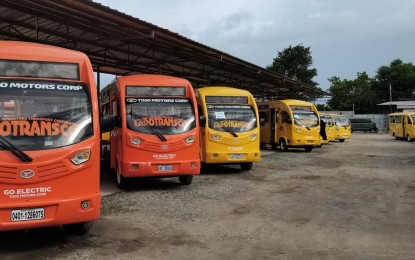
(Photo courtesy of Electric Vehicle Association of the Philippines)
MANILA – The Electric Vehicle Association of the Philippines (EVAP) is still optimistic with the growth of the industry as long as key government policies will be in place.
During the two-day 9th Philippine Electric Vehicle Summit from Thursday to Friday, EVAP president Edmund Araga said the pandemic has further slowed down the growth of the local EV industry.
Araga said EV registration in the country dropped 35 percent to 1,015 units from 1,570 units in 2019.
For the past decade, total EV registration in the country reached 12,965 comprising of e-trikes, e-motorcycles, e-jeepneys, and e-cars among others.
“We are hopeful about the passing of the Senate Bill No. 1382 or the Electric Vehicles and Charging Stations Act last May. At the same time, the House Bill 4075, the Lower House’s version of the Electric Vehicle and Charging Stations Act has already passed the second reading,” Araga said.
He added that the issuance of the charging infrastructure guidelines and policy by the Department of Energy (DOE) will help in motivating businesses to put up and adopt EV charging stations by providing fiscal incentives.
Low-cost charging for EV is one of the top three factors for consumers to motivate them in purchasing EV, a recent study by Frost & Sullivan said.
Araga said the administrative order of the Land Transportation Office consolidating guidelines on the classification, registration, and operations of types of EV paves the way for further guidance for consumers’ purchase decisions and for local manufacturers to plan out their strategies.
DOE Secretary Alfonso Cusi also echoed that government support will help the local EV industry thrive even amid the pandemic.
“…(P)olicies and guidelines for all stakeholders must be in place to attract the necessary investment and effectively integrate EVs and EV charging stations in a robust and sustainable energy system,” Cusi said.
The energy chief added that the DOE is pursuing the project of deploying 20,000 imported EVs and putting up 5,000 EV charging station for the next five years.
Cusi said this project cut fuel use by over 145 million liters or equivalent to nearly PHP8 billion fuel costs. (PNA)
